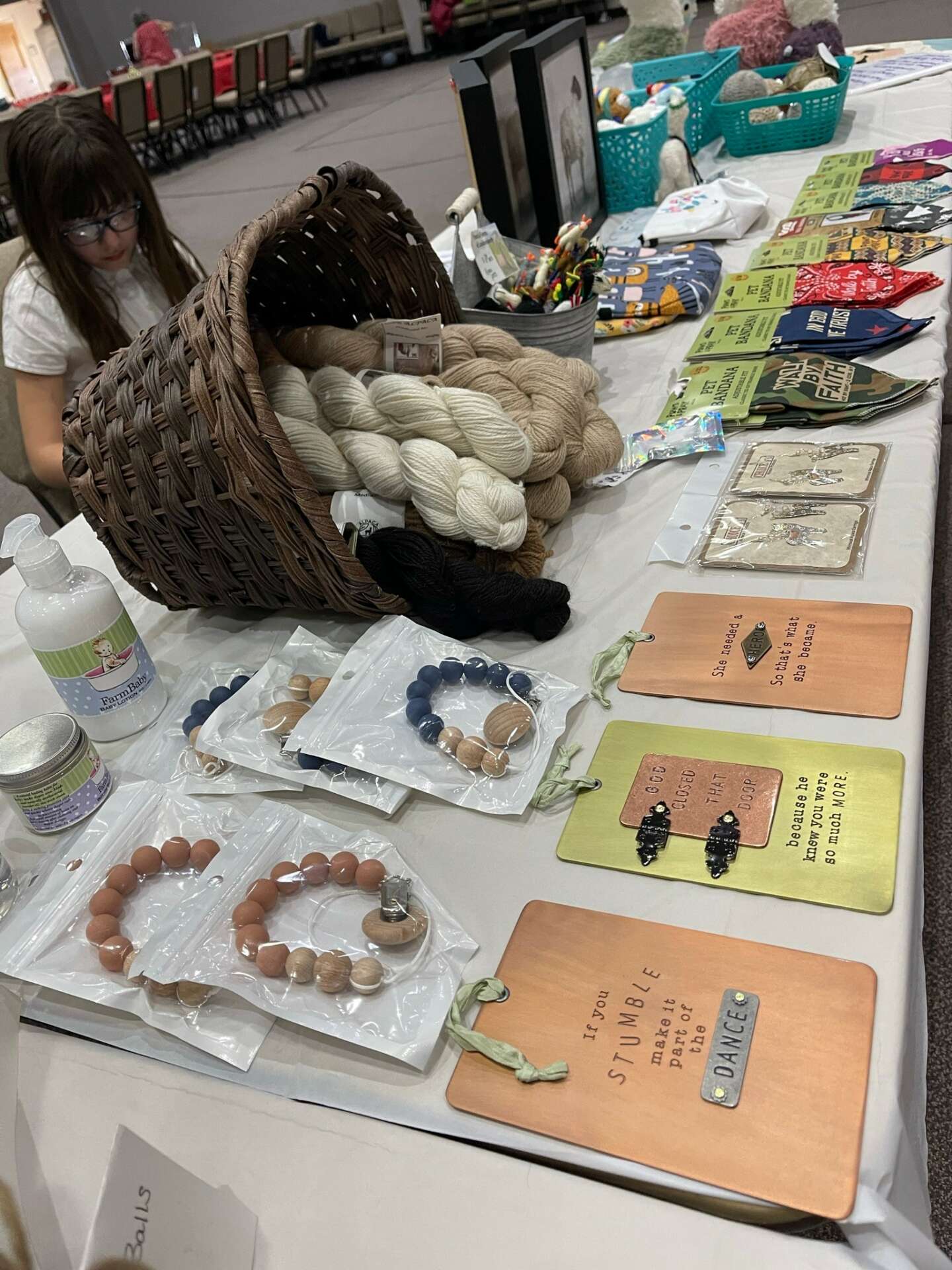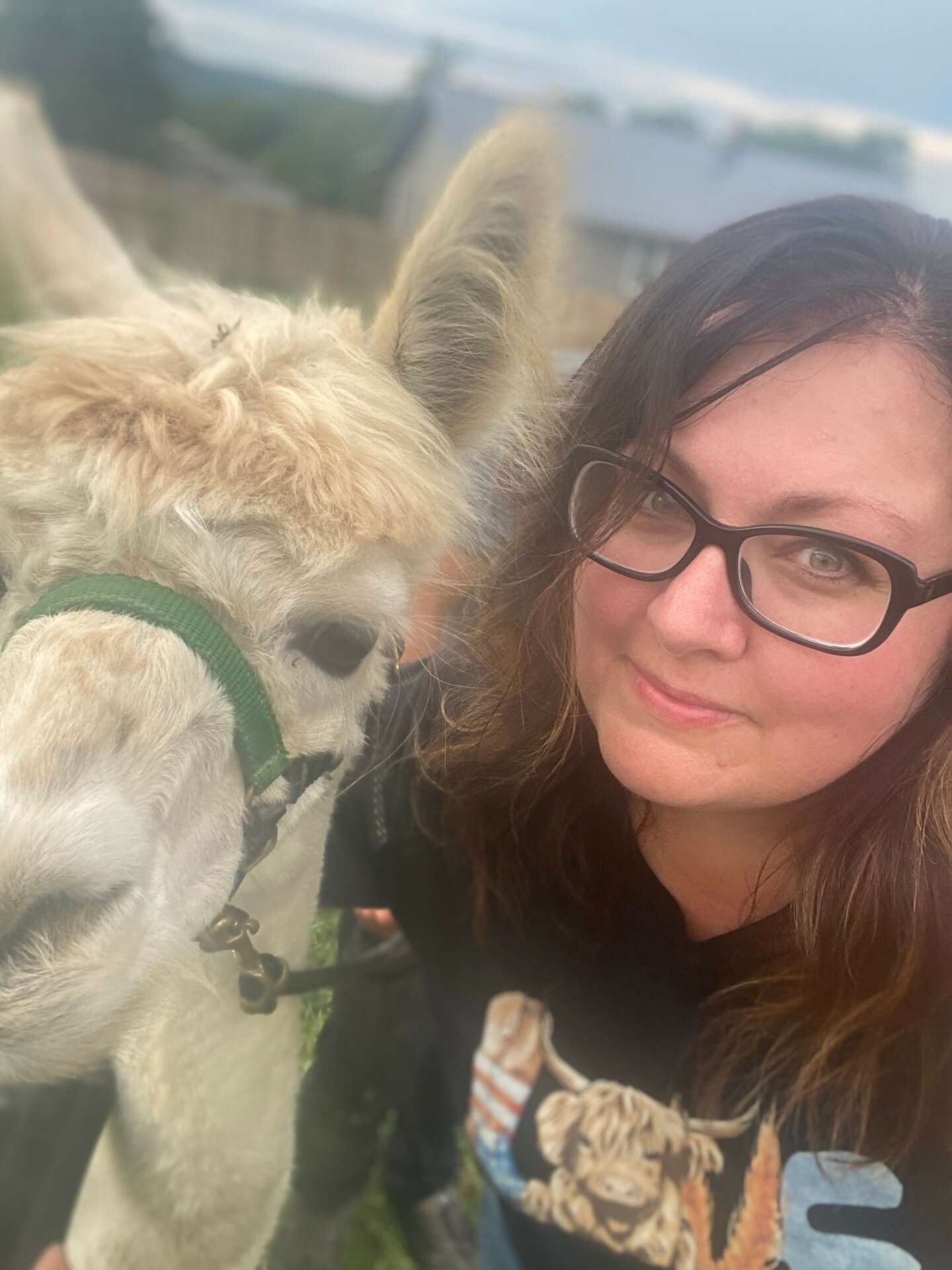We recently connected with Amy Francis and have shared our conversation below.
Alright, Amy thanks for taking the time to share your stories and insights with us today. We’d love to hear your thoughts about family businesses.
We have such a short time as parents to instill values, motivation, and leave a legacy to our kids. Having a family business, especially when it is a farm is a very rewarding experience with many benefits. With that also comes challenges and sacrifices. They learn many skills and management, but the greatest benefit is the bond and memories our kids will take with them. Hopefully one day once they have their own family, they will come to value the time we took to pour into their lives. We 100% believe they are learning many things not taught in a school setting, as well as learning to value education. They have seen firsthand, if I personally would not have take the time to learn, we would have lost several animals that needed immediate care to survive.
In the many farm events we have held, including news media interview, I have seen my children develop confidence, public speaking skills, and customer service skills even at young ages. They have learned to answer questions about the animals, their care, answer questions about rescue animals that we care for and what it takes to run a farm.


As always, we appreciate you sharing your insights and we’ve got a few more questions for you, but before we get to all of that can you take a minute to introduce yourself and give our readers some of your back background and context?
My first job at 15 was at a pet store. I have always been an animal lover. I helped get a genetics project started in my Ag Science class in High School. I also worked on a local farm growing up. Four years ago, we purchased a house that needed a considerable amount of work. In trying to decide how to best utilize and manage the property, we decided to begin a small farm and rescue. It was not something we wanted to jump in head first, we stepped back and looked at what we wanted to accomplish and set goals. There are many training classes I had already taken on thing such as Needle Safety and Blood borne pathogens, but I needed more if we were going to be successful. I began to learn about housing requirements, types of pasture grass and the best mix for specific livestock. I learned about pasture rotation and fencing. I went through 6 months of training on alpaca care once we decided to raise and rescue animals. Having animals itself is very costly, but having and taking in rescues can be extremely costly. It is important to keep certain medications and medical supplies on hand. We have had countless emergency situations come up where an animal would have been lost if we were not prepared. To help offset many of these, I have began selling farm products, processing alpaca fiber, making certain items such as alpaca dryer balls, homemade detergents, & felted materials onsite. We do also have farm sponsorships where families can sponsor a rescue to help with their needs. With that, they are welcome to come to the farm to visit throughout the year. The thing that most sets us apart is we offer training, education, and even a fun summer camp for kids. We have visits from homeschool groups, school groups, Adult Day Centers, and opportunities for Boy Scouts/Girl Scouts to earn animal care badges. Monthly, we offer 4-H, FFA, or those interested in Animal Science to come to the farm to learn about how we manage livestock during our Herd Health events. They learn how to handle the animals, needle safety, the difference between subcutaneous and intramuscular shots. We also go over importance of keeping good animal records. Most importantly, why people should be fully educated, equipped, & trained before making the decision to bring an animal home. We offer many volunteer opportunities for volunteer hours as well. I am also proud for the opportunity to help organize the livestock area at the yearly Columbus Pet Expo. During this event and many others, students have the opportunity to volunteer helping to develop confidence as well as public speaking as they help with animals and talk to visitors. I want others to be aware what it takes for small farms and rescues to care for animals others have neglected or not been able to care for. The importance of buying and supporting local is vital to these businesses. You can help by visiting, scheduling to have mobile petting zoos for private or public events, donating or sponsoring a rescue to help with medication and veterinary costs.


How did you put together the initial capital you needed to start your business?
With having a farm or rescue farm, you really have no capital. In fact, quite the opposite, we have had to take loans to pay for additional buildings, shelters, and a livestock trailer. Everything you try to bring in, even as a nonprofit, has to report for taxes even though 110% is put back into the farm. When we moved, I sold quite a bit in yard sales to downsize. We used the profits from the sale of our home, and I cashed in the little bit of teacher retirement I had to ensure I had everything I needed in case of animal emergencies. We used it on building updates, a barn, livestock shelters, secure fencing, troughs, building barn stalls, heaters, animal coats in the winter, and building a Herd Health station to help protect those that come to learn about the animals. We continue to sell products, pre sale alpaca yarn, we process lamb meat though a processor and we sell meat, chickens, and eggs. We also have 6 educational programs available and offer an Incubator hatching project for local schools.


What do you think helped you build your reputation within your market?
I think there are many things that help build a reputation within a company. Things that we value and find important is kindness, integrity, investing in the lives of people and young people. I also think consistency, being available and valuing others enough to genuinely take time to talk to them (without looking for dollar signs). Many businesses lack the importance of relationships, which to me matters. It shows others you value them and their business.


Contact Info:
- Instagram: https://www.instagram.com/francis_farms_of_londonderry?igsh=aml6amNsenE2bzUz&utm_source=qr
- Facebook: https://www.facebook.com/francisfarmoflondonderry?mibextid=2JQ9oc
- Other: YouTube channel and website in progress
Image Credits
All photos taken by our farm. Photo of Sweet Cheeks eating from my hand taken by Chad Siders


